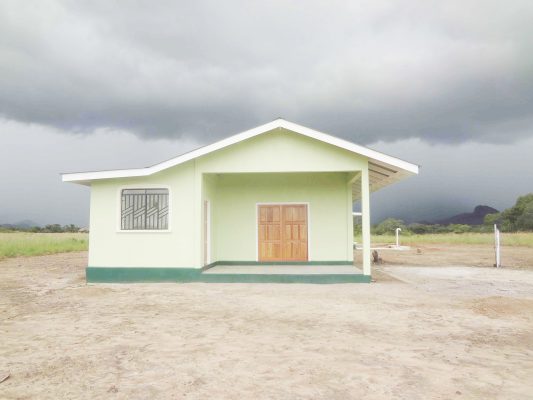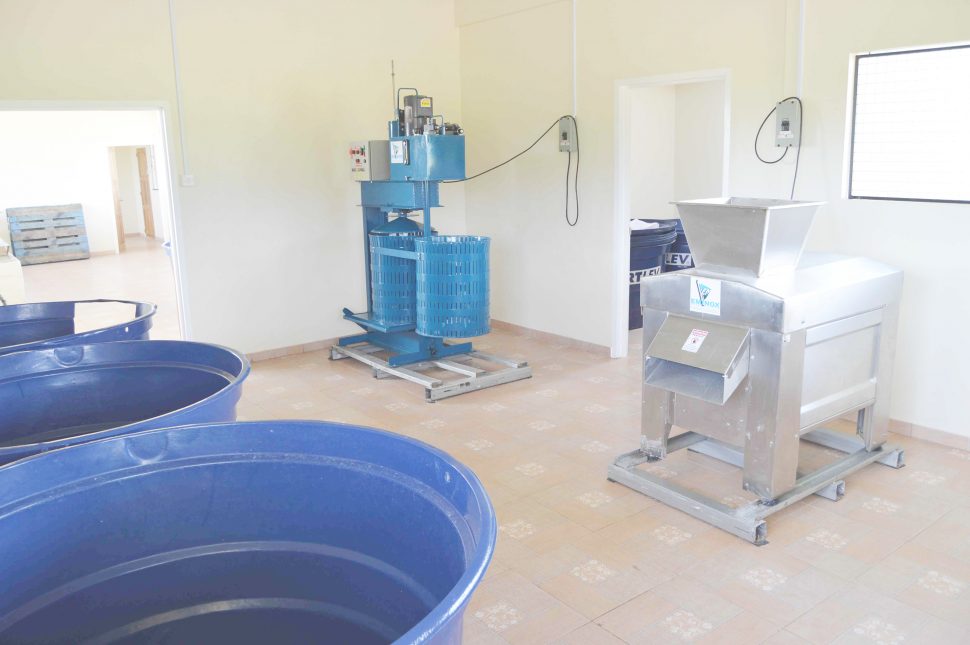Canadian development organization, CUSO International, recently commissioned farine processing facilities in two villages in the North Rupununi.
The Wowetta Village facility in North Rupununi was commissioned on October 26, 2018, while the Moco Moco village facility in central Rupununi was commissioned on October 27. Both farine processing facilities were in operation since October 2017. The development of the facilities began in 2013, when CUSO International recognized the significance of cassava in sustaining and empowering indigenous communities in the Rupununi.
The objectives of the two projects are to provide opportunities for each community to stock and store thousands of pounds of farine for natural disaster preparedness. The organization saw the need to ensure food security for remote communities in the hinterland that are affected by the natural disasters like flooding and droughts brought on by climate change. It is seen as a way to increase disaster preparedness and to bring revenue into the communities.

A release from CUSO international stated, “The projects have stimulated the development of a new business approach: plant and supply. Primarily a household business, surplus products are traditionally sold within the communities or the nearest hub – Lethem in central Rupununi – depending on prevailing needs”.
The facilities, which aim to improve and increase the production cycle, takes the processing time of the cassava from some ten hours to just about three hours.
The press release stated, “The farine processing facilities at Wowetta and Moco Moco are a dramatic demonstration of the evolution from the traditional processing environment to use of a mechanized, monitored system. The facilities are also encouraging local research based on the experience generated during processing.” Information from the research can later be used to promote environmental protection and promote a green economy.
Community members were trained and have designed systems to manage the annual farine stockpile as part of the disaster preparedness strategy. They were also trained to efficiently manage and account for every activity undertaken. The workforce targeted by the projects were women, who play a significant role in food sourcing within the indigenous communities. Through the developmental stages of the project, the Moco Moco community, through community initiative, managed to set up a 6.5 acre cassava farm. Crops from the farm contribute to the farine stockpile system for the community.
The partners in the project include, Conservation International Guyana, the Ministry of Indigenous Peoples Affairs and CUSO International.






